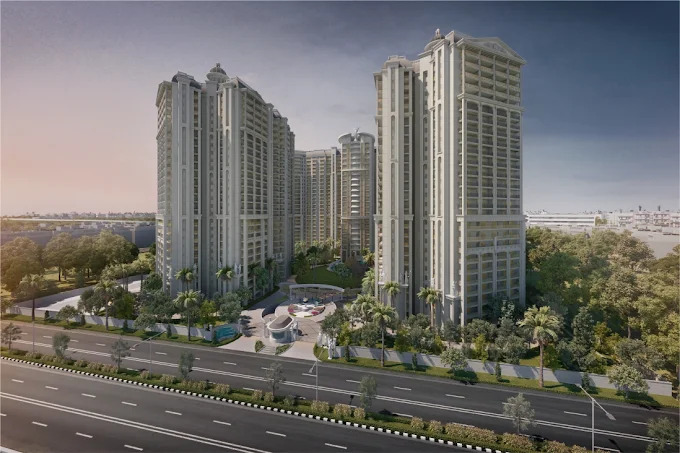Industrial property management is a critical aspect of the real estate industry, particularly for businesses that own or lease manufacturing, warehousing, or distribution spaces. Unlike residential or commercial properties, industrial properties have unique needs, such as specialized equipment, safety concerns, and long-term lease agreements. Whether you’re a property owner or a tenant, understanding the fundamentals of industrial property management can help maximize operational efficiency, reduce costs, and ensure compliance with regulations.
In this blog, we will explore the key strategies and practices involved in industrial property management, with a focus on maintenance, tenant relations, legal requirements, and the use of technology.
What is industrial property management?
Industrial property management involves overseeing and maintaining properties used for industrial purposes, such as factories, warehouses, distribution centers, and logistics hubs. It includes a wide range of responsibilities, from routine building maintenance and tenant management to ensuring that the property meets zoning and regulatory requirements.
For property owners, effective management ensures that the property remains attractive to potential tenants, stays in good condition, and generates consistent rental income. For tenants, a well-managed property provides a safe and efficient space for their operations, which can lead to increased productivity and reduced operational disruptions.
Key Responsibilities in Industrial Property Management
Property Maintenance
Industrial properties often feature large, specialized equipment and systems, including HVAC systems, loading docks, and storage racking. Regular maintenance is essential to ensure that these components are functioning optimally and avoid costly repairs in the future. A maintenance schedule should include:
- Routine inspections of HVAC, plumbing, electrical systems, and safety features.
- Preventative maintenance for equipment and machinery.
- Repairs and upgrades to ensure that the property remains in a safe and usable condition.
- Seasonal maintenance, such as snow removal or landscaping for the exterior of the building.
- Regular maintenance also helps prevent downtime, which is crucial for industrial operations that rely on continuous production or logistics activities.
Tenant Relations and Communication
Effective communication with tenants is vital for maintaining a positive and productive relationship. Property managers should foster clear, open channels of communication with tenants to address their concerns and ensure that all needs are met in a timely manner. This includes:
- Responding promptly to maintenance requests or operational issues.
- Negotiating lease terms and ensuring that both parties are clear on expectations, such as rent, maintenance, and property use.
- Regularly reviewing lease agreements to keep them up-to-date and in line with market conditions.
- Handling tenant disputes and ensuring compliance with contractual obligations.
- By keeping tenants satisfied, property managers can reduce turnover rates and maintain a stable income stream from rent.
Compliance with Laws and Regulations
Commercial industrial property must adhere to a range of local, state, and federal regulations, including health and safety standards, zoning laws, and environmental codes. Compliance is not only important for avoiding legal issues but also for ensuring the property is safe and suitable for tenants’ operations. Some key areas of compliance include:
Health and safety: Industrial properties often involve hazardous materials, heavy machinery, and large equipment. Property managers must ensure that the property meets safety standards and that tenants are aware of emergency procedures and safety protocols.
Environmental regulations: Industrial properties, especially those involved in manufacturing, must comply with regulations regarding waste disposal, emissions, and other environmental factors. Regular inspections and the proper disposal of hazardous materials are key responsibilities for property managers.
Building codes and zoning laws: Property managers must ensure that their properties comply with local zoning laws, which dictate the types of businesses that can operate within certain areas. Ensuring that the property meets building codes is also essential to avoid costly fines or violations.
Lease Management
Industrial leases are typically long-term agreements, often ranging from 3 to 10 years. Managing leases effectively is an essential part of industrial property management. Key tasks include:
Rent collection: Ensure that rent is collected on time and that any issues with payment are addressed quickly.
Lease renewals: As lease terms approach their end, property managers should begin discussions about renewals or renegotiations to retain tenants.
Tenant improvement coordination: Many industrial tenants require modifications to the space to suit their operational needs. Property managers must oversee the process of tenant improvements and ensure that the work complies with all relevant building codes and regulations.
Vacancy management: If a tenant vacates the property, the property manager must begin marketing the space, conducting property tours, and negotiating new lease terms.
Technology and Data Utilization
In today’s digital age, technology plays a crucial role in streamlining industrial property management. Property managers are increasingly using software to enhance their operations, track maintenance schedules, manage tenant requests, and improve communication. Some key technologies to consider include:
Property management software: These systems help manage everything from rent collection and lease agreements to maintenance schedules and financial reporting.
Building automation systems: These systems help monitor and control energy usage, security, HVAC, and other systems within the building. They can increase operational efficiency and reduce costs.Data analytics: By analyzing data from maintenance reports, energy usage, and tenant feedback, property managers can make informed decisions to improve the property and tenant satisfaction.
The Importance of Industrial Property Management
Industrial property management plays a pivotal role in maintaining the value of the property and ensuring that tenants can operate efficiently. Well-managed properties attract high-quality tenants, which can lead to consistent income for the property owner. Additionally, effective management reduces the risk of costly repairs, legal issues, and tenant turnover, ensuring long-term success for both owners and tenants.
Conclusion
Industrial property management is a dynamic and multifaceted field that requires a combination of technical knowledge, effective communication, and strategic planning. By focusing on maintenance, tenant relations, compliance, lease management, and the use of technology, property managers can ensure the smooth operation of industrial properties and maximize their profitability. For both owners and tenants, understanding these key strategies can help turn an industrial property into a well-managed, efficient, and valuable asset.

